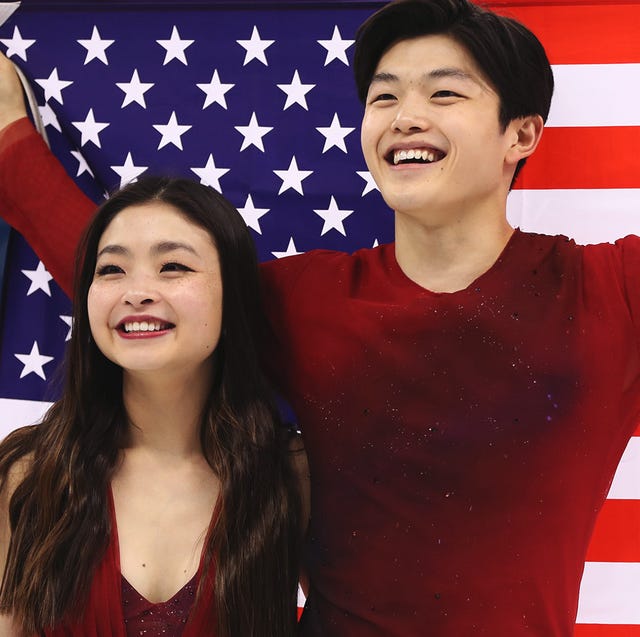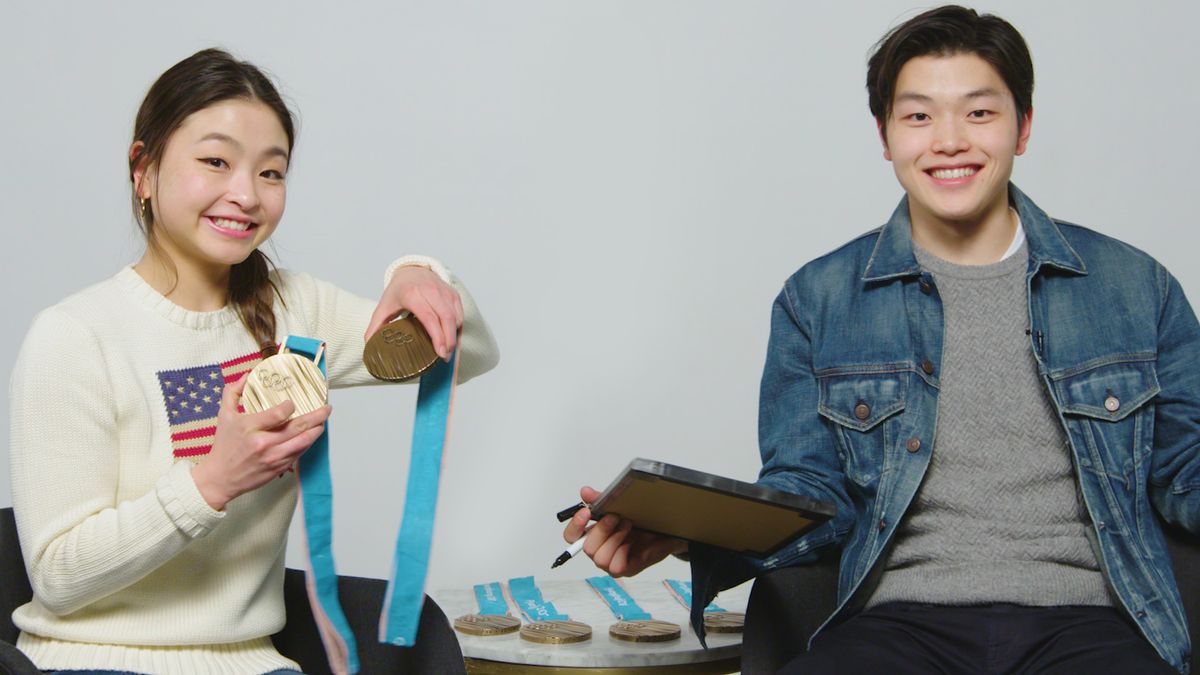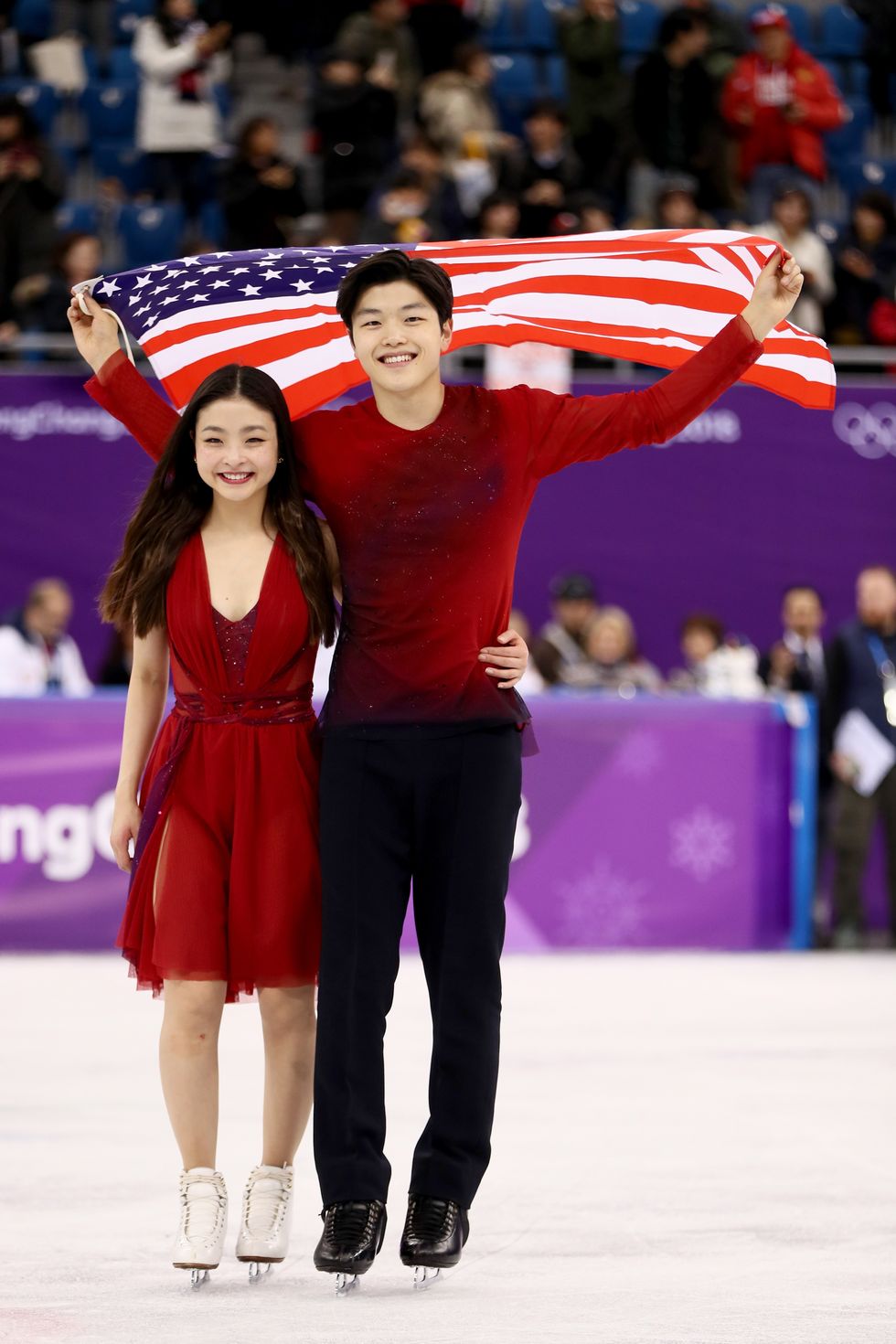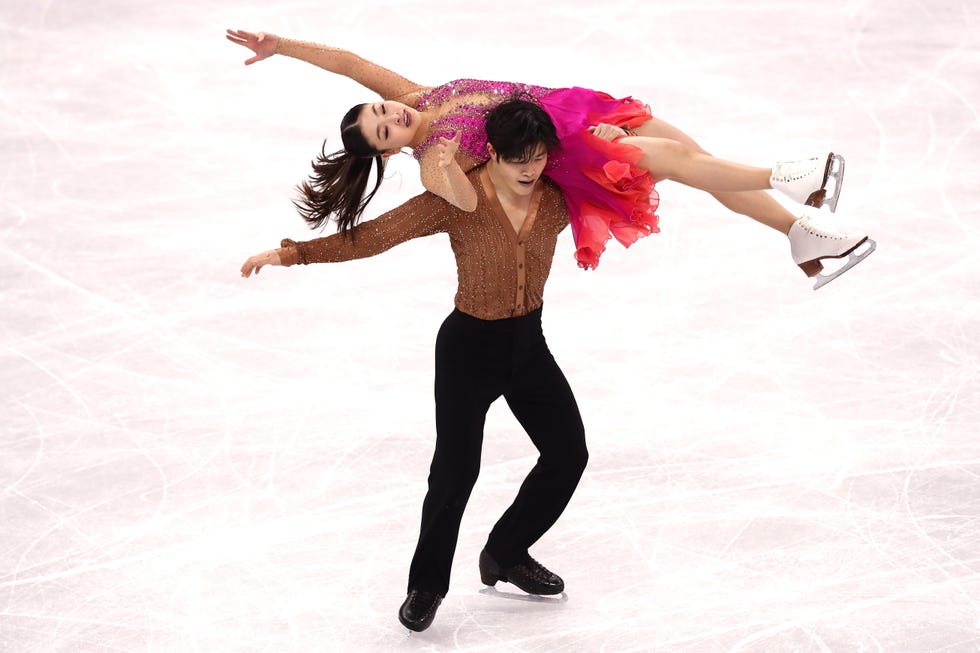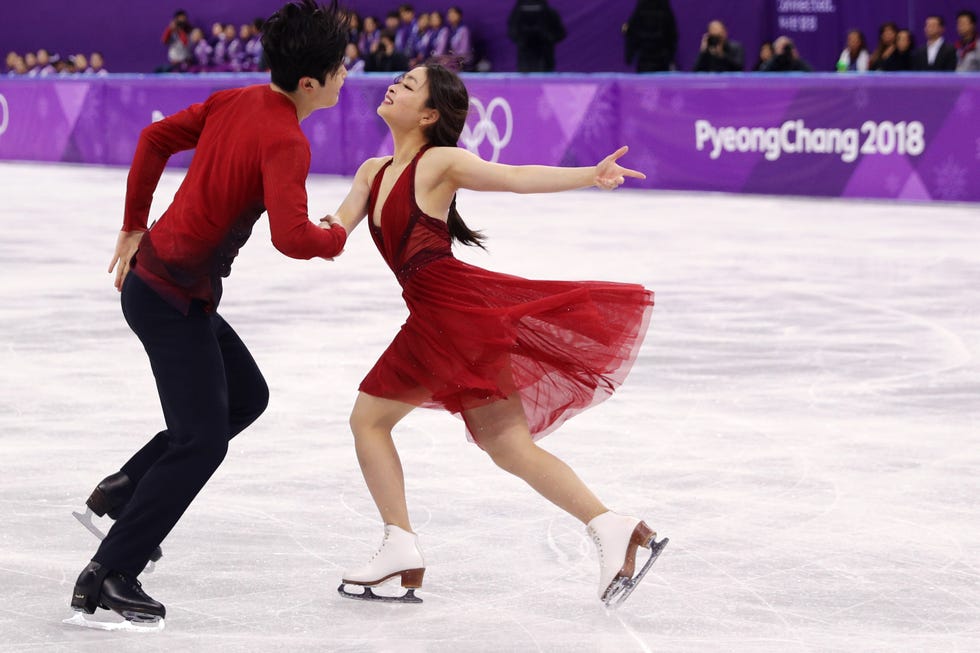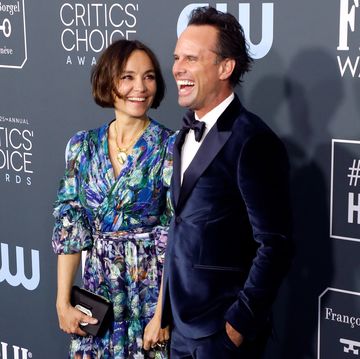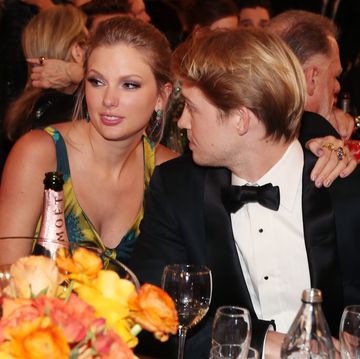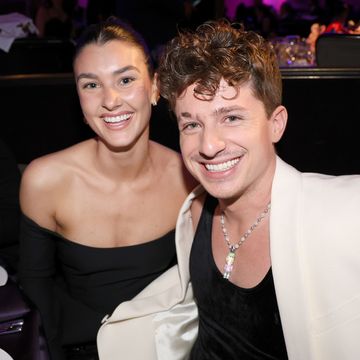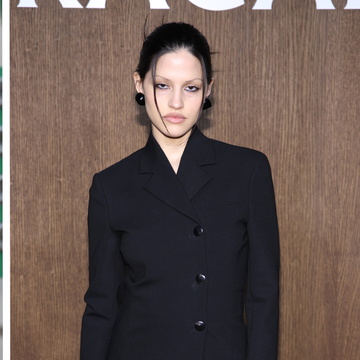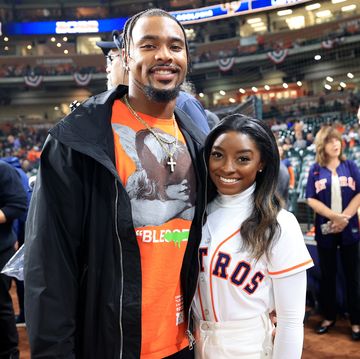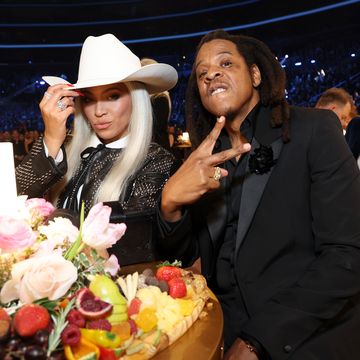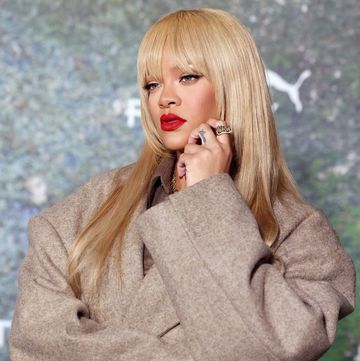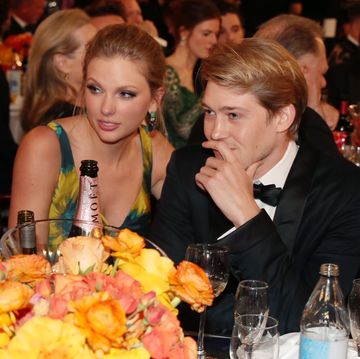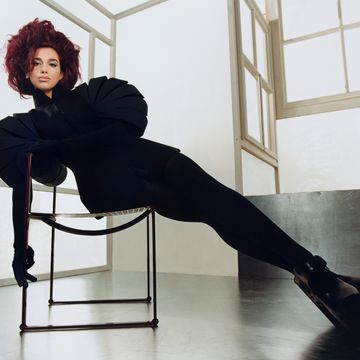Alex and Maia Shibutani won two bronze medals at the Olympics and made history, two-fold. They were the second pair of siblings to ever medal in ice dance (Isabelle and Paul Duchesnay of France were the first in 1992), and they were first Team USA athletes of Asian descent to medal in the sport. The Shib Sibs worked hard to get to their second Olympics (obviously)—and concentrated on, as Maia, 23, described it, skating "the best we ever have" in Pyeongchang.
But let the two debunk one Olympic rumor off the bat: The Olympic Village is not a crazy hookup zone. "I didn’t see too many people hooking up and get cozy, actually," said Alex, 26. "But it will continue to be a story because it writes itself: The most fit people in the world coming together and spending time in close quarters. People like to imagine that stuff happens—maybe summer is different than winter. They’re already wearing less clothes, it’s not as cold," he quipped, going on to a more serious note. "The thing that is really cool about the Olympic is that there are people from all over the world with this mutual respect for each other. Whether it’s a curler, skier, or skater, people have a lot in common. If hooking up is your primary objective at the Olympics, you’re not there for the right reason."
Here, the Shib Sibs talk about what their games were actually like, where they're going to keep their medals, and whether they actually got those Team USA hats to world-famous K-pop band BTS.
Where do you guys plan to keep your medals?
Alex: We haven’t thought about it. We’ll be traveling a lot in the next year and people are going to want to see them. An Olympic medal can inspire, especially kids. It’s something that we’ve worked so hard for, so being able to share will be nice. The less serious answer is–
Maia: We have to find a good spot at home.
Alex: We have four of them in our family now. We’ll take great care of them.
Let's talk about inspiring kids. What do you hope young people take from your journey?
Alex: We always have believed in ourselves. It’s important to surround yourself with people who believe in your dreams as much as you do. We’ve been very fortunate, but there have been difficult times. Hard work and believing in each other has gotten us to this point.
I want to touch on the history you both made being the second pair of siblings to medal in ice dancing. How do you hope that accomplishment changes what ice pairs look like going forward in the Olympics and the way they’re judged?
Alex: It’ll continue to be uncommon to see siblings skating together because there’s so many things that have to work out, The guy has to be large enough to lift the girl.
Maia: We both have to be interested.
Alex: And the sport tends to skew toward programs and music [with] romantic themes. So we’ve had to do different things.
Maia: We realized we were different so we had to approach our skating from a different perspective.
I know you guys had Team USA hats for BTS. Were you able to give it to them? Did you meet any K-Pop stars over in Korea?
Alex: So we’re actually friends with Eric Nam, who’s a K-Pop star who was born in the U.S., and he’s really popular in Korea. He came to one of our competitions, and that was really cool. We were able to hand off the hats, not directly to BTS, but [to] people that we trust will be able to deliver them. They are in transit at the moment.
People are really excited about BTS, and Maia and I didn’t grow up listening to K-Pop, but we’re so excited as Asian-Americans that a group of their stature is so well-received here in the United States. The crazy thing is that while some of their songs [have] English [lyrics], they are in Korean. And people all around the world are connecting because the music is good, the dancing is good, the talent is so evident. Music is one of those universal languages that everyone can understand. In a lot of ways, we had to do the same thing being different in our sport. We had to make sure that our talent spoke louder than anyone’s preconceived notions.
We also really respect the work that they do at United Nations and Love Yourself. The message they promote through their music is also very positive and we wanted to show our appreciation.
What’s it like training at the Olympics?
Maia: We only had one or two practices a day. At home we train for maybe four or five hours a day whereas there, you have 30 mins or an hour. It’s really about using your time most effectively.
Alex: Once you’re at the games, you’re not there to train; you’re there to maintain–all the work has been done. We spent hours and hours on the ice during the spring, maybe up to 10 or 12 hours at some points. We put that time in so when we get to the games it’s about the sport, being in the moment and having the mental capacity and strength to deliver when the entire world is watching.
Is there any special diet you guys follow?
Maia: When we were at the Olympics, we tried to keep it as similar to what we do at home as possible.
Alex: Every body is different and everybody is different. We each have very personalized things that we like to do so we have enough energy. We don’t have a traditional three meals a day plan for our food. We start training at eight o’ clock in the morning and then going until 2 P.M. so there’s no real break for lunch. So it’s about making sure we eat once every three hours. Once you’re hungry, it’s kind of too late, you need to be giving yourself as much energy as possible.
What was your biggest “pinch me” moment from the Olympics?
Maia: It came at the end, right?
Alex: Yeah, we had a lot of pinch-me moments. We were so excited to skate really well four times and after the team event, receiving our first-ever Olympic medal was an amazing pinch-me moment. But then realizing we had done even better after our second event and we'd have a second medal that we’ll be hanging around our necks...
Maia: The dream starts with you want to compete at the Olympic games and then once we made our first Olympic team it’s like okay we want to win an Olympic medal and when we did that with our team, at the individual event we were so focused on just doing our very best and–
Alex: Skating for ourselves.
Maia: Because there have been times where you feel really good and you get your scores and you’re like oh, okay, don’t quite understand.
Alex: We’ve been there before. You’ve done everything you could but the result doesn’t happen. The pinch me moment is everything coming together.
